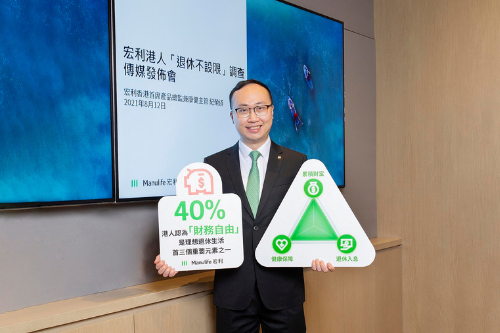

Almost one-third of Hong Kong respondents said their financial priority is to save for retirement, a survey by Manulife found. The survey also revealed the top criteria for an ideal retirement, which are keeping healthy, maintaining living standards and attaining “financial freedom”.
The survey polled 1,034 adults in Hong Kong about their plans and preparations for retirement, as well as their savings priorities and concerns. Conducted between June and July, the survey found the average target retirement age is 62, but only 41% of respondents are confident of retiring by their desired age. The majority of respondents expressed concern about their health and finances upon retirement.
“When it comes to retirement, people know what they want, but worry they might not get there,” said Wilton Kee (pictured above), chief product officer and head of health, Manulife Hong Kong. “On one hand, Hong Kong people look forward to their retirement – many have a clear vision of what the ideal retirement life entails. On the other, people also worry about worsening health conditions and having insufficient savings. Three in five are unsure whether they can retire at an age they desire.”
Respondents who have already made progress in their retirement planning tend to be more confident in retirement going according to plan, versus those who have not started. Fifty-eight per cent of respondents who have started retirement planning are positive about retiring by their target age, compared to only 29% for those who have not started retirement planning.
Manulife found that respondents’ retirement priorities were keeping in good health (72%), maintaining current living standards (44%), and attaining financial freedom with passive income (40%). On the other hand, when asked about worries, respondents indicated deteriorating health (54%) and not saving enough upon retirement (39%) as their top concerns.
More than half (53%) of respondents were aware of the term “passive income”, with younger respondents aged 18 to 34 being most aware (71%). Among the top sources of passive income identified were high dividend stocks (60%), annuities (40%), income funds (39%) and rental income from property investments (38%).
“Acquiring passive income is key to sustaining a desirable life during retirement,” Kee said. “Planning ahead to secure various sources of funds will enable retirees to maintain pre-retirement living standards, cover health costs or unexpected expenditure, and even travel and enjoy life without being stressed about money.”
